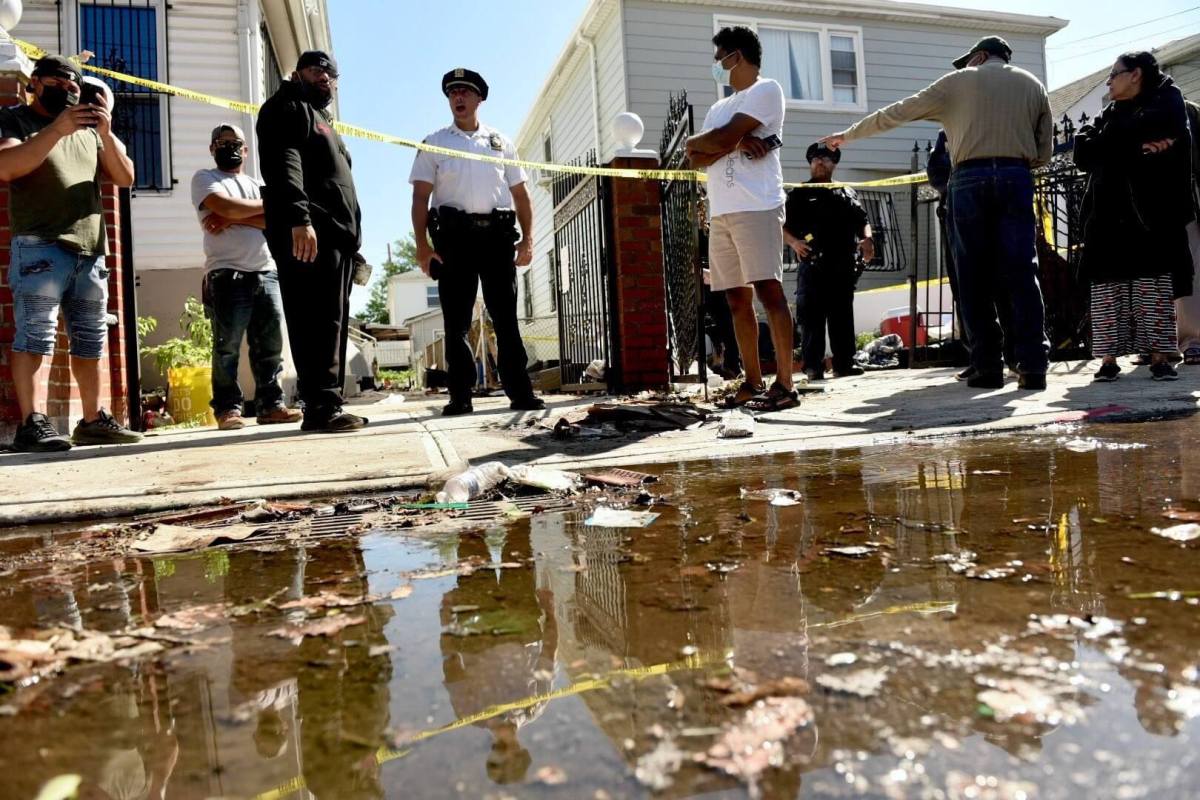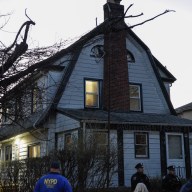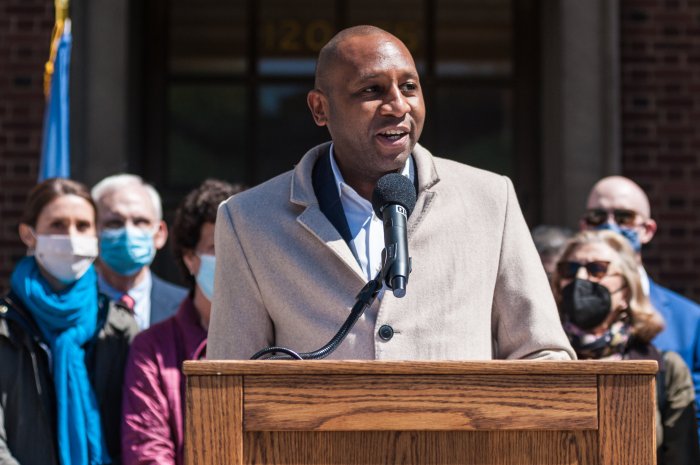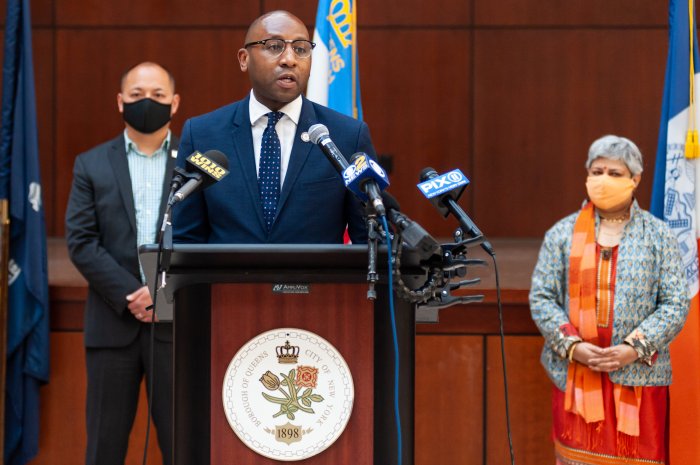New York will have to be prepared for more frequent heavy weather events due to climate change, Governor Kathy Hochul said Thursday, Sept. 2, hours after the remnants of Hurricane Ida soaked the city and overwhelmed its infrastructure, breaking rainfall records previously set just a week ago.
“That says to me that there are no more cataclysmic unforeseeable events. We need to foresee these in advance and be prepared,” Hochul said at a press conference in Queens on Sept. 2.
The state’s chief executive said she wants to pivot efforts to prevent flooding from the coasts to the streets, where the downpour caused waist-height flooding in some parts of Brooklyn and Queens Wednesday night.
“Where we have a vulnerability is in our streets, with the higher elevations now where the flash floods — which were unknown before, this is the first time we’ve had a flash flood event of this proportion in the city of New York and outlying areas,” she said.
After a call with President Joe Biden this morning, Hochul said the commander-in-chief offered “any assistance that the State of New York needs.”
Central Park experienced a record-shattering 3.15 inches of rain in one hour between 8:50-9:50 p.m., breaking a record set just 11 days ago during Tropical Storm Henri, and Hochul vowed to find out how government agencies could better prepare for disastrous weather in the future.
“We did not know that between 8:50 [and] 9:50 p.m. last night, that the heavens would literally open up and bring Niagara Falls-level of water to the streets of New York,” she said. “Could that have been anticipated? I want to find out.”
Forecasters had predicted the Five Boroughs would receive anywhere from 3 to 6 inches of rain, and the city had been under a flash flood watch. But the storm proved more severe than prognosticated, triggering the first flash flood emergency in New York City’s history.
Last night, the city saw about the same amount of rain as it did during Henri, but this fell within a very short amount of time, says city Department of Environmental Protection Commissioner Vincent Sapienza.
“Anything over two inches an hour, we’re going to have trouble with,” Sapienza said.
Her first priority is to uncover any vulnerable spots on the city’s streets where there isn’t proper drainage, causing the stormwater to pour into the city’s underground mass transit system, which came to a full halt Wednesday night.
“We need to identify the areas where we have vulnerabilities on our streets, where the drainage systems are not functioning properly and they’re close to the entrance of a subway and we need to be able to fix those first so we don’t get a situation where the drainage system, the sewer system, can’t handle the volume and then the water just creates a river down the steps and into the subway system,” she said. “I think that’s our first priority, I know that’s my first priority.”
Hochul was joined by Mayor Bill de Blasio and Senate Majority Leader Chuck Schumer, who said it was “imperative” for his colleagues in Congress to pass the $1 trillion infrastructure bill and the budget reconciliation bill to get some much-needed federal dollars.
“Global warming is upon us. When you get two record rainfall in a week, it’s not just coincidence,” said Schumer. “It’s going to get worse and worse and worse unless we do something about it.”
De Blasio said the storm was yet another sign that climate change was rearing its ugly head, and it was time for serious change.
“The brutality of storms now, it is different,” he said. “This is the biggest wakeup call we could possibly get. […] In our time we have to make this change, we’ve gotten the message.”
The storm resulted in at least seven deaths throughout Queens as of Thursday morning, including the loss of a 2-year-old boy in Woodside, according to authorities
Queens Borough President Donovan Richards also spoke at the press conference and said that “all 2.4 million Queens residents mourn the lives lost” as a result of the storm.
He also implored local homeowners to document the damage to their properties and put in claims with the city’s comptroller’s office and their insurance carriers.
Richards also called for “much more infrastructure investment” in Queens. Investments made after Hurricane Sandy helped limit damage to the Rockaways and Rosedale, Richards said, and could have helped limit the damage throughout the borough during Hurricane Ida.
“We cannot wait until tomorrow. We need it today,” Richards said. “These lives could have been saved if we had investments that we sorely needed a long time ago.
See the full press conference below.
In Queens giving an update on storm recovery efforts.
Watch Live: https://t.co/fYfrJ5uUE7
— Governor Kathy Hochul (@GovKathyHochul) September 2, 2021


































